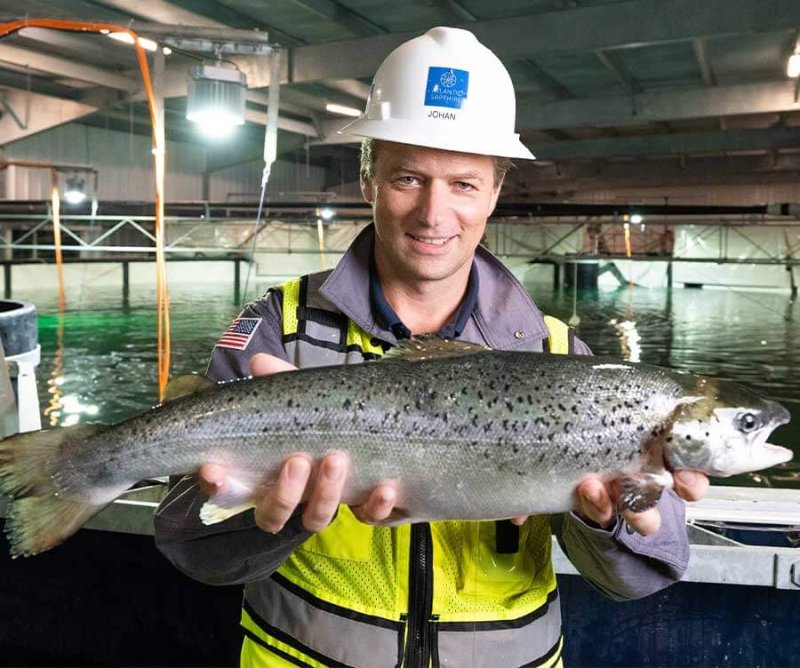In a series of indoor tanks 40 miles south west of Miami, Florida, five million fish are swimming in circles a very long way from home.
The fish in question are Atlantic salmon, which are far more typically found in the cold waters of Norway’s fjords or Scotland’s lochs.
…
The facility, called the Bluehouse, opened its first phase last year, and intends to be the world’s largest land-based fish farm.
Targeting an initial production of 9,500 metric tonnes of fish per year, its owner – Atlantic Sapphire – plans to increase that to 222,000 tonnes by 2031.
…
Called “recirculating aquaculture systems”, or RAS for short, they control everything from the temperature, salinity and pH of the water, to its oxygen levels, artificial currents, lighting cycles, and removal of carbon dioxide and waste. The latter are filtered out, and treated water is reused.
As it is a closed-loop system, the salmon are not exposed to seaborne diseases and parasites, so unlike sea-based farms, Atlantic Sapphire says its fish do not need to be treated with antibiotics or pesticides.
“In general, compared to the [sea-based] industry, we have the lowest disease incidents and the lowest mortality rates,” says Neder Snir, chief technology officer of Israeli firm AquaMaof. His company has now designed technology for 10 such RAS fish farms around the world.































